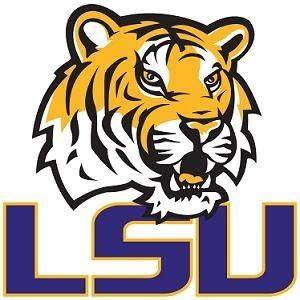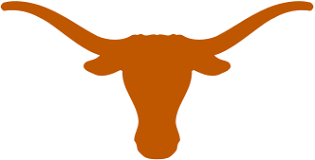
The Washington Redskins are in the news this week. Five names are mooted to be in the mix as they come under increasing pressure to change their contentious nickname, which they have held since 1933, a year after they were founded as the Boston Braves. Nike, FedEx and PepsiCo are being urged to cut their ties with the Redskins, so millions of dollars are at now at risk in addition to the bigger point of simply doing the right thing.
Washington’s nickname is a derogatory slur, insulting to a proud Native American people whose tribes were the foundation of the very nation whose capital dishonours with its choice of team name. On si.com, Conor Orr writes that in choosing their new name, the Redskins could emerge “with something that could honor a heritage that spent so long feeling squeamish, or downright offended, by the name.”
Nicknames have gone hand in hand with American sports teams since their inception. Crowd noise, cheerleaders, cannons add to the atmosphere at a college football game, but you get a real sense of fighting spirit, identity and the very culture of a team with these monikers. Names such as the Fighting Bison, Tigers (there are 3 teams in the SEC – LSU, Auburn and Missouri who all share this nickname) and Fighting Irish conjure up a combative spirit and the length of time that these teams have held their nicknames lends a credible hint of the aura they seek to bring into their next contest.
In the UK, we haven’t really embraced this. Recent years have seen efforts to add nicknames to rugby league and cricket competitions but it seems a bit enforced and not at all in keeping with the identity of the teams. Matthew Engel, the editor of Wisden (the bible of cricket), was quoted by The Independent that English cricket had become “desperately obsessed with gimmickry and describing the advent of nicknames as “rather sad.” He’s right. I’m more likely to buy into the concept of a tiger from Louisiana than Castleford, to be honest. And the Surrey Brown Caps? Come on.
Where the Redskins are under the spotlight, other major league sports teams have continued to hold on to some questionable nicknames. Baseball’s Atlanta Braves still retain their culturally insensitive logo, while the Cleveland Indians still use a Chief Wahoo caricature in their logo, despite criticism from Native American groups.

College sport seems to have been a bit more forward thinking. In 2005, the NCAA announced a policy banning “hostile and abusive” American Indian mascots, nicknames and imagery. Schools continuing to do so were banned from postseason play. The University of Utah appealed the decision and have been allowed to retain their nickname, the Utes and their Circle and Feather logo. The university’s Communication Institute say they “use the name Utes for its sports teams, as it has done with full support of the Ute Indian Tribe since 1972.” This year also saw Stanford change its nickname from Indians to Cardinal, and UMass change to the Minutemen from Redmen. A year later, Eastern Washington changed from the Savages to the Eagles.

The Redskins would do well to take a leaf out of Florida State University’s book. A January 4, 2014 article on Fox Sports: “Seminoles nickname not a problem at Florida State”, says the main reason is that “the Seminole Tribe of Florida counts itself among the very biggest fans of Florida State, its nickname and all it represents.” FSU work closely with schools on the Seminole Tribe’s reservation and offers full scholarships to tribal members who attend the university. The tribe acknowledges the respect for its culture and sanctions the use of both the Seminole nickname and FSU’s mascot, Chief Osceola, who rides out to the 50 yard line of FSU’s Doak Campbell Stadium before kick-off and throws a flaming spear into the ground.
Fittingly and in keeping with their fighting spirit, the Seminoles are the only Native American nation not to have been defeated by the US Army. Chief Osceola was tricked and captured during peace negotiations.
Nicknames for a lot of college history are steeped in folklore and tradition. The Civil War, which shaped so much of modern American history, was the inspiration for many of these. LSU Tigers nickname came from a Louisiana Civil War regiment who Union soldiers said “fought like tigers”. Kansas Jayhawks were named after anti-slavery advocates who battled supporters of slavery for control of their state and arguably set the wheels in motion for the 1861-5 conflict. Tar Heels had been used for lower classes who fought in North Carolina’s turpentine industry. The meaning changed for the positive when a Civil War regiment using the name stood their ground and the University of North Carolina adopted the nickname. Oklahoma Sooners were named after settlers who started claiming land in Oklahoma before the land rush of 1889, thereby grabbing land “sooner” than the others. Legend has it that a Notre Dame coach and war veteran likened the team to “fighting like the Irish” and the nickname of one of the most famous teams in college football was born.
Regional characteristics were crucial in shaping team names too. Purdue Boilermakers for their connection to the steam industry, Texas Longhorns pay homage to the cowboy roots of the Lone Star State and the brilliantly named Wichita State Shockers take their name from Kansas workers who would “shock” wheat to help pay for their tuition.

And then there are the ridiculous nicknames which add so much character. There are the UC Irvine Anteaters, TCU Horned Frogs and possibly my favourite, the lesser known Scottsdale Community College Fighting Artichokes. It could be worse, the Rhode Island School of Design’s hockey team are cheekily known as the “Nads”, with a logo to match!
Whichever nickname Washington opts for, it’s a long overdue change and let’s hope it stands for something more.













Comments